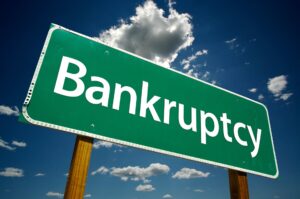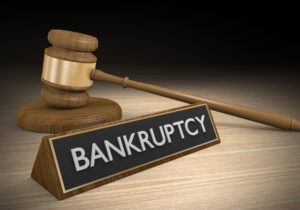The last few years have been particularly stressful for individuals, families, and small businesses struggling with debt. The pandemic, inflation, and other economic factors have strained the finances of people across the country. If you are struggling with debt, you are far from alone. Unfortunately, many people with debt develop feelings of hopelessness, as it seems as if they will never be able to climb out of this situation. However, bankruptcy offers many people a path forward. Often considered a last resort option, filing for Chapter 7 bankruptcy may be the best way to give you the financial “fresh start” you need to feel hopeful about your future once again. Consider opening up to an experienced and compassionate New York bankruptcy attorney to determine the most strategic path forward. Let’s take a look at what the Chapter 7 bankruptcy process typically entails and when you can expect to have the bankruptcy removed from your credit report for good.
Understanding Chapter 7 Bankruptcy in New York
First, it’s helpful to understand how the Chapter 7 bankruptcy process works. You list everything in the world you own (house, car, money in bank, etc.) and the law provides you exemptions to protect that property. Most people who file for Chapter 7 bankruptcy have very little nonexempt property. A Chapter 7 bankruptcy will wipe away your dischargeable debt and you are in and out of a bankruptcy in about three months. At the end of the three month period, the Bankruptcy Court will issue a discharge that wipes away your debt obligations.
Qualifying for Chapter 7 Bankruptcy Relief
There are several criteria that you must meet in order to qualify for Chapter 7 bankruptcy relief. The petitioner’s current monthly income must fall below the state’s median monthly income. Additionally, you may not file for Chapter 7 bankruptcy if you have filed a previous Chapter 7 bankruptcy within the last eight years. You will need to complete a credit counseling program from an approved credit counseling agency within 180 days before filing your bankruptcy petition.
What Debts Are Dischargeable Under Chapter 7?
Most types of debt are dischargeable under Chapter 7. Dischargeable debts include credit card charges, collection agency accounts, medical bills, personal loans, past-due utility balances, past-due rent and money owed under lease agreements, old repossessions or judgments, and old tax penalties. It’s essential to recognize that some debts are not dischargeable under Chapter 7. Recent income taxes, all sales tax, child or spousal support obligations, student loans, and debts incurred by fraudulent means cannot be discharged, meaning you will still be responsible for paying these debts.
How Chapter 7 Bankruptcy Impacts Your Credit Report
When you file a Chapter 7 bankruptcy you can expect to see your credit score drop. There is no specific number that it will drop by. If you have a 800 credit score, a bankruptcy filing will have more of an impact than if you have a 600 or lower credit score. You will start rebuilding your credit within months after filing for bankruptcy. Any negative dings that are happening on your credit report right now (late notices, charge offs, collection notices, etc.) will all stop. So the bankruptcy will immediately stop what is negatively happening on your credit report. You will begin rebuilding your credit immediately and will be able to get new credit sooner than most people think. Any secured debt that you are keeping (house, car, etc.) will continue to show up on your credit report and will also help you rebuild your credit.
Strategies for Rebuilding Credit Following a Bankruptcy Discharge
There are several steps you can take to start rebuilding your credit after bankruptcy. We will provide you with all the information you will need. You will only need to wait until the bankruptcy is discharged (debts wiped away) to check your credit and start rebuilding.
Get the Fresh Start You Deserve
If you’ve been struggling with seemingly insurmountable debt, you may feel overwhelmed by the thought of taking action. However, you do not have to go through this challenging process alone. Enlisting the assistance of a caring and knowledgeable Watertown, New York bankruptcy lawyer is the best way to ensure you secure the bright future you’re looking for. Your attorney will never judge you for finding yourself in financial trouble; instead, their priority is empowering you to regain control of your future. Reach out to a dedicated attorney who can help you get and stay motivated to enjoy a brighter and more stable future.
If you need help exploring your debt relief options in Watertown, New York, call Grady BK, PLLC, today at (315) 299-9005 to speak with a dedicated and compassionate bankruptcy attorney.




